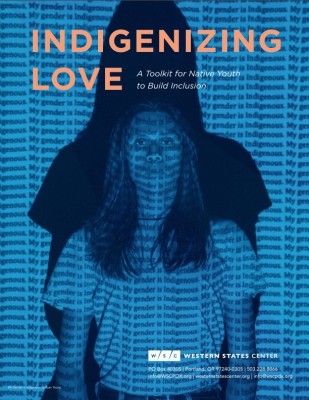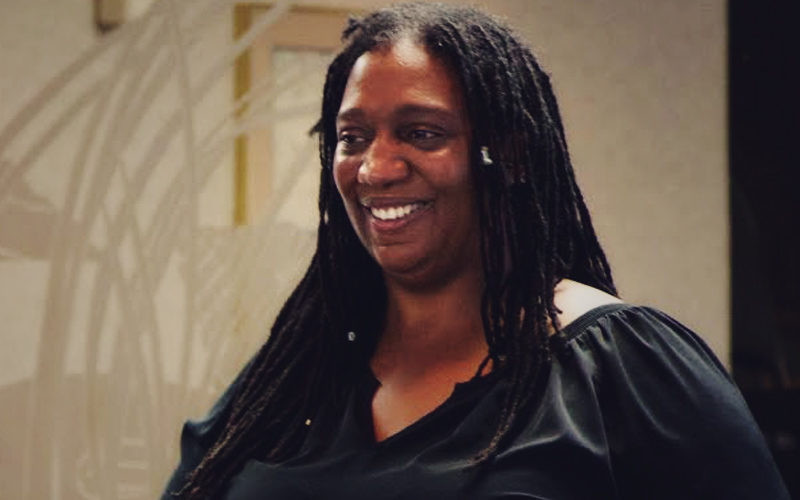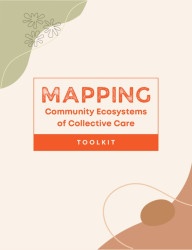Resources Library: Training Modules
Start a Search:
How Community Service Boards and Domestic Violence Programs Can Help Each Other
This Power Point presentation was developed and presented by Martha Kurgan from the Department of Behavioral Health and Developmental Services at the Virginia Department of Social Services Promising Practices conference on September 16, 2013.
Indigenizing Love: A Toolkit for Native Youth to Build Inclusion

In response to requests from American Indian and Alaska Native (AI/AN) youth, Western States Center partnered with the Affiliated Tribes of Northwest Indians, the Center for Native American Youth, and Native Youth Leadership Alliance to develop a resource toolkit for and with young Native leaders.
This toolkit is written to support Native youth, tribal communities, Two-Spirit and Native LGBTQIA+ collectives, community leaders, and partners who intend to better understand and support our Two-Spirit and LGBTQIA+ communities. Native youth have asked for more resources on relationship building, caretaking, and inclusion of the TwoSpirit community. They want to better understand the important and diverse ways that Two-Spirit relatives and community members have sustained practices of making relations in spite of and beyond settler colonial violence.
Indigenizing Love refers to the idea of understanding and reclaiming our Indigenous ways of life (including kinship systems, shared values, and expressions of love), and resisting centuries of imposed settler colonial practices, policies, and thoughts that devalue our rights to share Indigenous knowledge and thrive. To Indigenize Love, we are rebuilding connections, kinship and relationships, and strengthening our abilities to love and care for all of our relatives.
Interactive Training Exercises on Abuse in Later Life
This manual provides instructions for 16 exercises focusisng on several key training points for multiple target audiences such as professionals from domestic or sexual violence agencies, elder abuse/adult protective services, aging, health care, justice, and others. It also provides ideas for exercises that trainers can adapt to meet the needs of many audiences.
Keeping Your Cup Full: Self-Care is Essential to Trauma Informed Advocacy
Self-care is essential to providing trauma-informed advocacy. This webinar will offer strategies for dealing with daily work related stress, will increase awareness of the issue of vicarious trauma, and will provide ideas in order to gain organizational support to help sustain and support those working with survivors of trauma.
 Presenter: Vanessa Timmons is the executive director of the Oregon Coalition Against Domestic and Sexual Violence and presented several workshops at the 2016 Warmth of Other Suns Conference held by the Action Alliance in August. She is an accomplished writer, activist, and storyteller dedicated to exploring the healing power of words. She recently completed her guided journal The Way of The Heroine.
Presenter: Vanessa Timmons is the executive director of the Oregon Coalition Against Domestic and Sexual Violence and presented several workshops at the 2016 Warmth of Other Suns Conference held by the Action Alliance in August. She is an accomplished writer, activist, and storyteller dedicated to exploring the healing power of words. She recently completed her guided journal The Way of The Heroine.
To access this webinar and other important materials, please click here.
Mapping Community Ecosystems of Collective Care

By Shannon Perez-Darby and Andrea J. Ritchie
Since the 2020 Uprisings, there has been an explosion of interest, activity, and organizing around community-based approaches to building safer communities free from the violence of policing. Throughout this period, Interrupting Criminalization has been supporting these efforts by sharing expertise built over decades of organizing for and practicing transformative justice-based approaches to building liberatory communities with resources, toolkits, webinars, podcasts, skill-shares, trainings, cohorts, and learning and practice spaces.
In many of these spaces, and within broader campaigns and movements to divest from policing and invest in the building blocks for safer communities, critical questions and conundrums began to surface from organizers. At the core of these concerns are the questions of:
- How do we build shared definitions, values, and practices of safety across neighborhoods and organizations working within a city?
- How do we weave our small, often relatively new community safety projects — ranging from mutual aid formations, to transformative justice practitioners, to neighborhood defense organizations, to community fridges, to violence interruption and crisis response teams operating at hyper-local levels — into robust, palpable neighborhood and city-wide ecosystems of care that people can feel, trust, and rely on more fully to collectively build greater safety and wellbeing?
- How do we relate to state institutions and resources as we are doing so?
This toolkit offers some resources, responses, and additional questions to consider based on our work and practice spaces.
In particular, this toolkit emerges from the work of our Creating Community Ecosystems of Collective Care Cohort, which launched in March of 2022 and featured over a dozen organizations working in community safety coalitions in Miami, Durham, NC, Seattle, Milwaukee, Phoenix, Minneapolis, and Atlanta. This cohort consisted of groups who were already engaged in this work; it was designed as a virtual space for organizers to learn, practice, and strategize together toward building more robust community ecosystems of care at the neighborhood and city-wide levels.
In addition to breaking isolation, cross-pollinating across communities, and creating a virtual community of practice, the goal was to collectively create resources to support communities beyond the cohort who are grappling with similar questions. This toolkit is that vision come to life.
As communities face increased policing, criminalization, and organized abandonment; mounting state violence, repression, and authoritarianism; escalating white supremacist, homophobic, and transphobic violence; and climate collapse; building skilled, coordinated, expansive, and robust ecosystems of collective care is only becoming more and more essential to collective survival.

